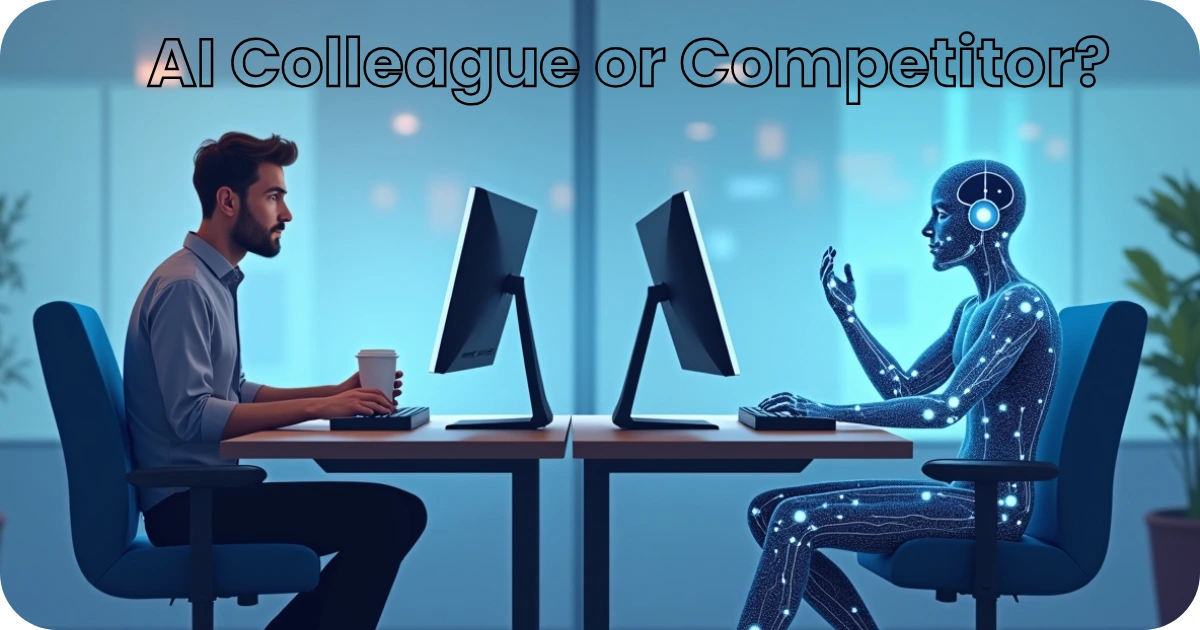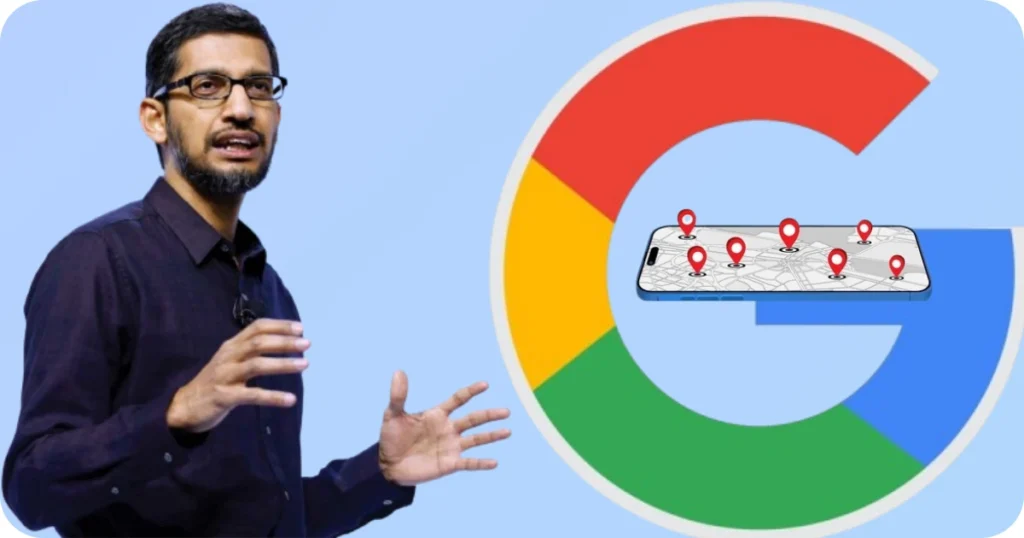Virtual Employees-Just imagine on the Monday morning when you reach the office with a coffee in your hand as you are ready for another tight schedule week of nonstop meetings, suddenly you notice next to your table there is a new hire.
Contents
You may be surprised it doesn’t have a body, so neither does it need caffeine nor make small talk. its your virtual colleague. Yes, soon it may replace you.
What Are Virtual Employees?
These virtual employees are designed to work along with humans or possibly instead of people too. So don’t you think it bothers you?
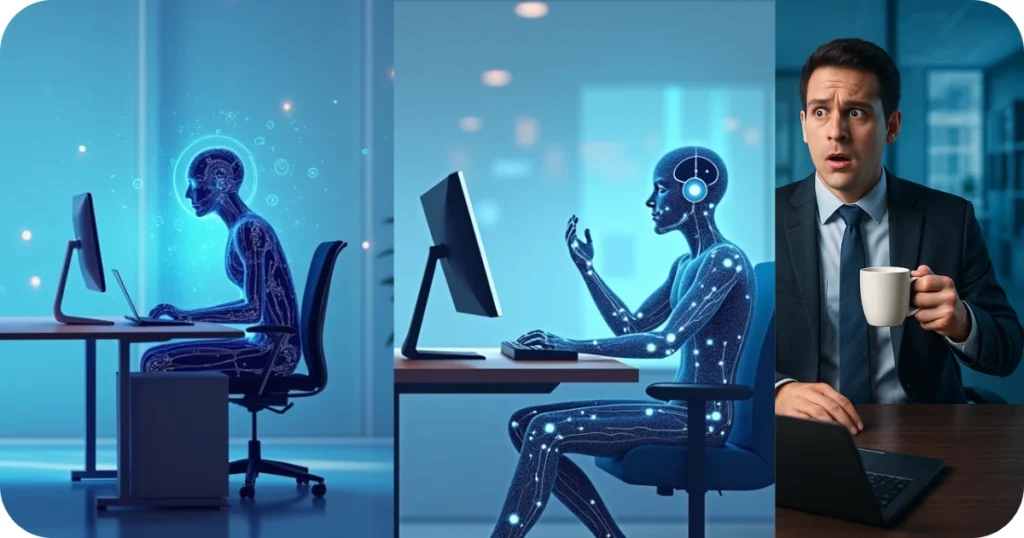
Reading this, you may think, what is a virtual employee, and is it going to take your job in danger? These are AI agents. Mr. Sam Altman, CEO of OpenAI, has mentioned these AI agents in his blog post.
Technically, Mr Sam Altman in not wrong. Some of the companies in US and Europe are already ahead to lead. McKinsey is one of the examples.
Virtual Employee Race
This company has already started to build a new AI agent that can help and handle customer inquiries, collaborating with Microsoft. And this company wants an assistant who doesn’t complain about back-to-back meetings.
In this virtual employee race, they are not the only ones. OpenAI 2 had a plan to promote its own agent called Operator, which is going to be operating soon.
This operator has the ability to write a code, and it can handle all menial tasks. And then comes the new AI suite from Microsoft; it’s Copilot Studio.
Will AI Take Over ?
A company like Anthropic has introduced a new AI model that has the ability to type the text and move the mouse pointer. The cursor can move automatically.
I hope you may get the idea of how these companies are advancing them rapidly with the help of AI, and these AI agents are going to be the future.
McKinsey & Company has already predicted that in the future, 30% of US work hours can be automated by 2030. That a lot of jobs might disappear altogether and get a digital makeover. It is kind of scary. But here come the big questions: Are these AI agents here to replace us? In certain situations, yes.
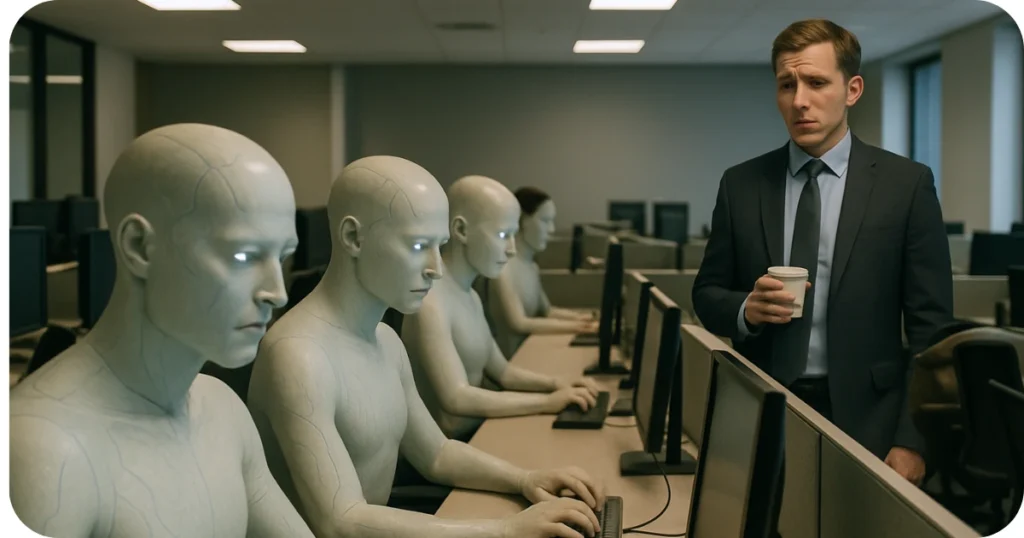
It is going to affect 300 million jobs because of this AI. It’s a projection. 300 million jobs is roughly 9.1% of the whole world. As per the IMF, International Monetary Fund 60% of jobs will be affected by AI in some way.
So be sure sooner or later AI will eventually replace your job somehow. But some of these agents aren’t flawless; they are still in the development stage and have their own issues. Also, there is a dilemma: who will control these AI agents?
How can we make sure that they do not perpetuate biases? How do we prevent them from causing chaos? And—above all—will they ever understand the subtle art of office small talk?
Why Humans Still Matter in the Age of AI
AI shines in repetitive, data-driven tasks. They can handle inquiries and are able to schedule meetings. But what they can’t do by themselves is generate a large idea. At least not yet; for that we need humans.
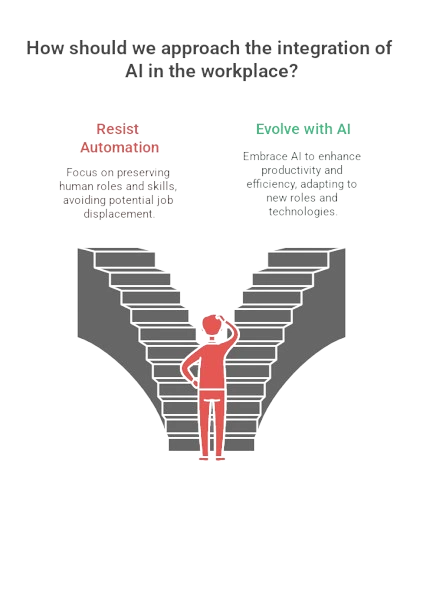
A virtual agent can’t give you an idea. Now it’s not science fiction to work with virtual employees, and they are reshaping our work area, but they are not perfect.
Let’s face it, they also lack the human touch. Absolutely, there will be a change at work. So the key is to resist this automation wave. We should evolve with it, as we accepted computers, the internet, and email long ago, so we can do the same for AI.
Let’s Work with AI, Not for It
The key point is we should learn how to work with these virtual colleagues and find a way to collaborate. And we should focus on that thing that only human can do the best rather than lean on AI
At the end of the day human element is important to the workplace; no algorithm can fully replace us.
Read a real-life story of a 14-year-old boy whose life ends the moment he start interacting with AI
- Sundar Pichai: The Story Behind Google Maps

- Fast Fashion Graveyard: Effecting Planet

- Mr Beast: The YouTube Billionaire

